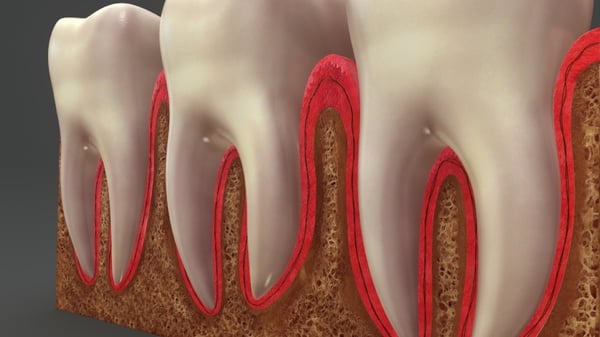
Dental care is all about preserving the health of your teeth. That's why regular professional cleanings are essential in addition to your daily habit of brushing and flossing; that's why regular checkups are needed to help us find and remove cavities as soon as possible.
In some cases, the damage and decay go beyond what filling a cavity can fix, but it's still possible to save the tooth with a root canal. Root canals are common procedures and can help save your tooth from extraction.
When Do You Need a Root Canal?
Inside your teeth, you have a soft tissue called pulp. This pulp can become infected by a deep cavity or trauma and damage to the tooth caused by, for example, an accident or repeated dental procedures.
If this infection spreads to the surrounding tissues, an abscess can damage the tooth and even the bone it's connected to, which may result in the loss of the tooth.
There are a few symptoms that might indicate your need for a root canal:
- Tooth pain or sensitivity
- Extreme sensitivity to hot or cold that doesn't immediately go away when the hot or cold source is removed
- Swelling and sensitivity of the gums surrounding the tooth
- Darkening or other discoloration of the tooth
We will check the tooth and determine the extent of the damage and the right course of treatment. It's important to seek treatment right away if you notice these symptoms.
In some cases, those symptoms might point to a cavity that can be filled! However, waiting to find out not only prolongs your discomfort, it could increase the damage to the tooth.
What Is a Root Canal?
This procedure is known commonly as a root canal, but it is also called endodontic treatment. It involves cleaning out the damaged pulp and root of the tooth, then filling and sealing it. It is usually completed in one or two visits.
It starts with a simple digital X-ray of the infected area. Then we make you comfortable with local anesthesia and, if you'd like, laughing gas. We isolate the tooth with a thin protective shield called a dam to prevent saliva and bacteria from entering the area.
From there, we make a small hole in the top of the tooth to access and remove the pulp and root. The entire space is thoroughly cleaned, filled, and sealed.
In some cases, you might need a crown over the root canal, depending on the position and condition of the tooth. The crown offers strength and integrity in case the existing tooth is too weak to manage years of chewing. Either way, after your root canal, the tooth is ready to get back to work!
What Does Treatment Involve?
Root canal treatment could require one or more dental visits. Your dentist will perform the necessary steps to save your tooth:
- First, your tooth is numbed for your comfort. A thin sheet of latex rubber is placed over your tooth to keep it dry. Then an opening is made through the crown of the tooth into the pulp chamber.
- The tooth’s nerve, or pulp, is removed from the pulp chamber and root canal (the space inside the root). Each root canal is cleaned and shaped so it can be filled.
- Your dentist may place medicine in the pulp chamber and root canal to help get rid of bacteria.
- The root canals are usually filled with a rubber-like material to seal them.
- A temporary filling is then placed in the tooth to prevent contamination of the root canals. You might be given antibiotics if the infection has spread beyond the end of the root(s). If your dentist prescribes medicine, use it only as directed. If you have any problems with the medicine, call your dentist.
- During the next stage of treatment, the dentist removes the temporary filling and restores the tooth with a crown or a filling to strengthen it and improve the way it looks.
What To Expect After the Procedure
After your root canal, the area will probably be sensitive. This is normal. We can offer suggestions for how to best manage this discomfort, perhaps with over-the-counter pain relievers or even an ice pack. You might prefer to eat soft foods for a few days. If the infection was widespread, you might receive a prescription for antibiotics.
Here's the great news: root canals are effective and long-lasting. The procedure can help preserve your tooth for the rest of your life!
Like the rest of your mouth, it requires proper dental care and hygiene. Good habits like brushing and flossing and visiting us for regular cleanings and checkups will help protect all your teeth, including your restored tooth.
A healthy mouth is important for your overall health and sense of well-being. Root canals are common, and Dr. Linger has performed many of them!
Scary root canal stories are a thing of the past; today's root canal treatments feature leading dental technology and a focus on comfort and quick recovery.
If you have any questions about root canals, please contact us. If you think you might need one, don't delay: schedule your appointment today.



